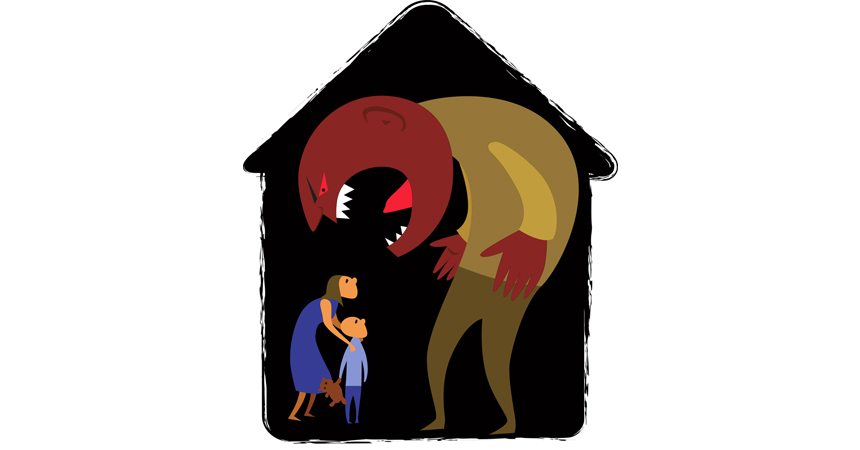Terminating an intimate relationship with a narcissistic spouse is a dreadful event and we have an earlier article that cover what you can do to deal with it. If you have children in the marriage with a narcissistic spouse, the bad news is that you will still have to deal with him or her for a long time after the divorce proceedings are finalised.
Usually, a divorce does not end the abuse that you and your children might have received from your narcissistic spouse. There are still issues which you will need to deal with him or her, such as co-parenting or the settlement of maintenance fees.
In almost all cases, co-parenting or trying to maintain an amicable relationship with a narcissistic ex-spouse is next to impossible. It is not a realistic expectation to believe that your ex-spouse will behave better after the divorce. Narcissistic persons only focused on themselves and their needs come first, so do not expect your ex-spouse to put the children’s interest as priority. In fact, attempts at co-parenting or maintaining an amicable relationship is likely to keep you enmeshed in legal and emotional battles that are better off left alone.
What are the best ways that you can do to help your children and yourself recover from the abuse that might be inflicted by your narcissistic ex-spouse?
1) Focus on what you can control
Dealing with a narcissistic ex-spouse is an exhausting thing. Therefore, focus on what you can control and let go of the rest. Importantly, control what you want to do in order to ensure your own happiness and that of your children’s. Do not be persuaded by sweet talk from your ex to do something which you are not willing or uncomfortable to do. Even if he or she acts up because of your refusal, stand firm. Adopt a business-like attitude with him or her is the best way to disarm the narcissism.
2) Set firm boundaries and limit contact with your ex-spouse
Narcissistic persons are happiest when they have a chance to create conflicts and arguments. Therefore, you need to set firm boundaries about how and when you make contact with your ex. If you think it will help, write scripts for any possible scenarios that you think you might have to interact with him or her.
For example, if your ex try to persuade you to get back together for the sake of the children, do not let yourself be won over by the sweet talk or the apologies. Gently but firmly tell him or her that it hadn’t work out before and it will not work out even if you get back together again.
3) Do not express guilt, regret or offer apology to your ex
Whatever you may do during your interaction with your ex, do not express any form of guilt, regret or offer any apology to your ex for any perceived or real wrongdoings in the failed relationship. Such expressions may be interpreted as proof of your weakness and incompetence in caring for the children and can be potentially used against you in future legal issues.
4) Do not tolerate any demeaning or abusive behaviour from your ex
This is very important if you and your children had previously suffered abuse from your ex-spouse. Keep in mind that abuse need not be physical. It can be mental or emotional abuse and these can have far-reaching consequences on yourself and your children.
Any contact with your narcissistic ex-spouse must be in a location and situation where you and your children feel safe. This may mean having someone you trust close by when you interact with your ex. By planning for the worst, you can anticipate what he or she might do to get back at you. Do also remember to save all abusive evidences such as emails and text messages if you receive any.
5) Make sure you have strong support from your family lawyer, friends, family members and possibly a therapist
There might be a need to keep your family lawyer and a few trusted friends and family on speed dial while you are dealing with your ex-spouse. Make sure to check with your experienced divorce lawyer what you need to look out for in your interaction so that you will not be blindsided by your narcissistic ex. Friends and family members are crucial to keep you anchored to your decisions and help you deal with the emotional and mental tortures that you might suffer due to the divorce and having to handle your ex’s constant battles.
If you feel that you are getting nowhere, getting a cognitive behavioural therapist to help you change any unhealthy behaviour that you might have internalised during your marriage to your narcissistic ex-spouse can help you to handle the whole situation in a more controlled manner.
Before we close, the last thing we want to recommend is to critically examine the impacts of your ex-spouse’s behaviour and how it has clouded the dynamics of your relationship with him or her and the children. Only when you recognised the fact that you can control how you behave and react to outbursts and accusations from your ex, will you be able to handle the situation expertly and improve the quality of life for both you and your children.













